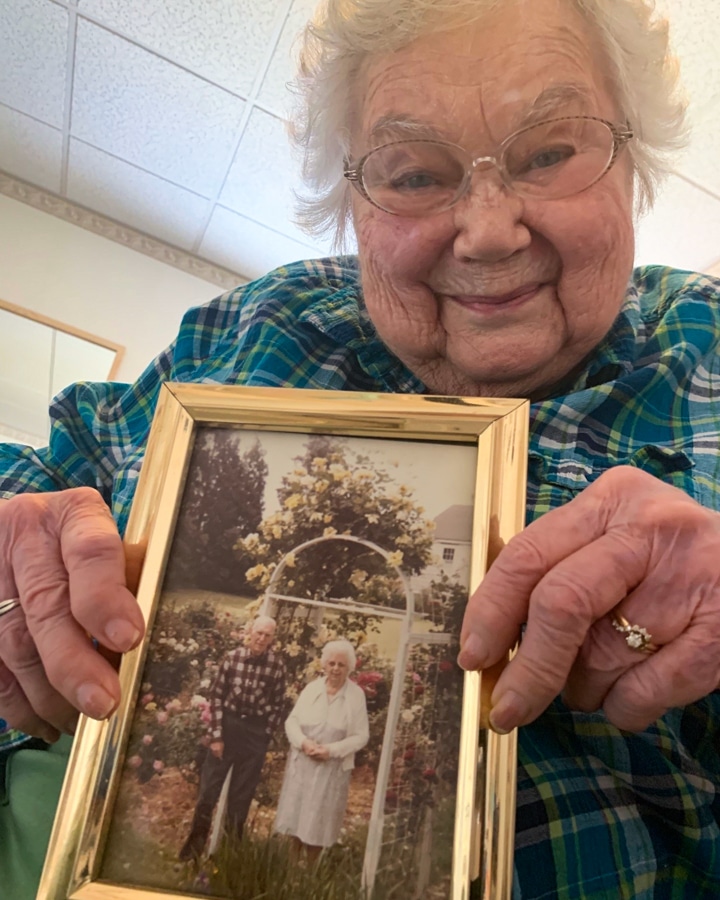It’s no surprise that you’ll find grandparents sharing wonderful accounts of their grandchildren. But when we asked our SGLC residents about their own grandparents, that’s when the stories really began.

It was a different world back then. Mothers were housewives and fathers supported the family by working outside the home. Televisions were the exception rather than the rule. Children entertained themselves by playing outside, usually without adult supervision. There were weekly visits with the grandparents.
As members of the Silent Generation (born 1928-1945), our residents were children in the 1940’s and 1950’s. Their grandparents – born in the late 1800’s or around the turn of the century – were truly notable. They showed strength and resilience, surviving the Great Depression and helping with the war effort. Many were immigrants. They embraced their new country with enthusiasm.
Our grandparents had to learn a new language and culture.
“Two of my grandparents were from Russia or Poland; the other two from Russia and Sweden,” said Joan Kaess. “They spoke Yiddish but not in front of me. They both said ‘We are American!’ over and over They were immigrants and proud to be living in America.”
“My grandparents were from Romania,” said Ruth Finkel. “They were ‘pioneers’ moving out to California and then coming back east. My father himself was an immigrant. He never discussed his past life in Europe. He was just so happy to be an American – that was the most important thing.”
“My grandparents were immigrants who came through Ellis Island – Russian and Polish origins,” said Shelley Bernstein. “My paternal grandfather’s name was changed at Ellis Island from Samuel Mann to Sam Fineman. Both my grandparents spoke Yiddish. My grandfather spoke better English than my grandmother and could read and write, too.”
“My grandparents on my father’s side, Benjamin and Anna, were from Russia and Poland and also spoke Yiddish,” said Jerry Bernstein.
“My grandfather on my Dad’s side was from Norway,” said Myrtle Robinson. “He was a tailor for the military in Wyoming. He built pants factories. My grandmother was German and came over by boat.”
“My mother’s side was Russian, my father’s Polish,” said Celia Mastel. “They all spoke Yiddish and I called them Bubbe and Zayde. My father’s father died in the Holocaust. My mother’s side went to Argentina to flee the pogroms. They were given a farm from Baron Hirsch.
Margaret Amorosi was one of the few whose grandparents were born in America. “They lived in their own home and spoke English,” she said. “My mother’s side was Amish.”
Our grandparents spent treasured moments with us.
“Grandpa Harry was a Wall Street stockbroker who went bust during the Depression, but went on,” said Joan Kaess. “He and I used to buy bagels together every Sunday. I remember he put me on his shoulders, we looked at a grandfather clock and he asked me if I was a Democrat or a Republican.”
“I only knew my grandmother from my mother’s side,” said Ruth Finkel. “She was a wonderful seamstress – a fashion designer for her time – very artistic. She visited us every Friday, stayed over and left on Saturday morning. She was very literate and well-spoken. She had her own social life.”
“My grandfather was deaf,” said Myrtle Robinson. “I used to walk with him and talk to him and he never answered me. Our grandmother visited us every summer after my grandfather died. I called them Grandma and Grandpa. When I was 3 years old, a hurricane knocked down their Florida house. My family went down to Florida to build them a new house and we lived with them for a year during that period.”
“We went to museums and the zoo together,” said Celia Mastel of her grandmother. “She was a nice, kind, gentle, humble person. She never raised her voice.”
Our grandparents made our favorite dishes.
“My grandmother was a great cook,” said Joan Kaess. “She was the hub of the family. She kept the extended kin all together. I remember family dinners on Sundays.”
“I remember the holishkas (baked stuffed cabbage),” said Celia Mastel.
“My grandmother was a wonderful kosher cook,” said Jerry Bernstein. “She taught me a few things even though she couldn’t read or write. She cooked ‘Veronicas.’ I was a lousy eater except for her cooking. I taught my grandson how to cook. I bought him a chef’s toque and showed him how to make pasta sauce. He was not interested. He only wanted to eat it.”
Our grandparents gave us advice.
“My grandfather Harry used to tell me, ‘Don’t be a communist!’” said Joan Kaess.
“My grandmother’s advice was to “work hard,” said Myrtle Robinson.
“My grandparents taught me to be helpful,” said Margaret Amorosi. “I taught my grandchildren the same.”
It’s a great time to celebrate grandparents.
Grandparents Day is celebrated on the first Sunday following Labor Day each year. It’s a wonderful reason to get together with your grandparents and share that special connection.
The Simon & Sylvia Zisman Seashore Gardens Living Center (SGLC) is a nonprofit home for the aged, guided by Jewish tradition, law, and charity, dedicated to enriching the quality of life for its residents. The 125,000 square foot senior Living Center features a continuum of services which include assisted living, short and long term nursing care, Alzheimer’s care, respite care and full rehabilitation services all under one roof. For more information, visit www.seashoregardens.org.


